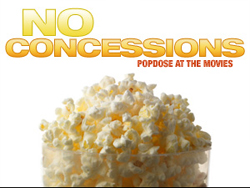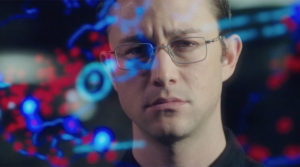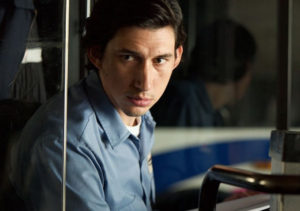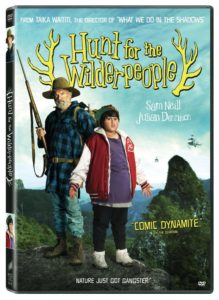 September is pretty much a dead zone for movies, but the industry started bringing out the bodies anyway. From now through awards season we’ll be getting entries from the top (Natalie Portman as Jackie) to the, umm, bottom (King Cobra, the story of gay porn star Brent Corrigan).
September is pretty much a dead zone for movies, but the industry started bringing out the bodies anyway. From now through awards season we’ll be getting entries from the top (Natalie Portman as Jackie) to the, umm, bottom (King Cobra, the story of gay porn star Brent Corrigan).
Sully pretty much salvaged last month’s boxoffice. It’s not hard to see why–it has uplift, tension, and Tom Hanks in its favor. The “miracle on the Hudson” is excitingly reenacted. With my infant daughter on my lap in January 2009 I remember watching the local news reports roll in, awestruck at the accomplishment.
Trouble is, the “miracle” only lasted 208 seconds. That leaves Clint Eastwood’s account with 92 more minutes to fill, and aside from brief flashbacks to pilot Sully Sullenberger’s childhood and aviation training he fills them with his usual dumbass “libertarianism,” inventing episodes out of whole cloth to make more of a movie out of a short heroic episode. Do you remember the National Transportation Safety Board hauling Sully and his co-pilot (Aaron Eckhart) into proceedings that questioned their response to imminent disaster? Did you know Sully had premonitions of his plane crashing into midtown Manhattan? Did you know his wife (an unfortunate Laura Linney) nagged at him repeatedly as the investigation wore on? “Damn,” you think, as Sully collapses into a heap of misery. “Maybe it would’ve been better had he just crashed that plane into a skyscraper!”
If none of this rings a bell, it’s because little of this torment actually happened. The intent is to make Sully’s “exoneration” all the sweeter. But there was nothing to exonerate. Everyone did their jobs, the right decisions were made at the exact rght time, and a potential Airport ’77 not far from my home was averted. What was the “miracle on the Hudson”? Professionalism.
Someone thought the movie needed a villain, however, beyond the obstructionist geese who got into the engines. And that someone was Eastwood, a favorite star, and a mostly mediocre filmmaker despite the ongoing Oscar love. The movie is OK in the air, and on the water, yet stumbles badly on land, in corridors of power sullenly aligned against Sully. At 96 minutes including credits it’s one of his shorter movies, but the phony anti-government digressions make it feel as long as one of Mr. Empty Chair’s audience-free duds, like Changeling and J. Edgar. Eastwood’s American Sniper bought into the lies told by its self-aggrandizing subject; Sully finds imaginary bad guys in government officialdom. Why the pessimism? Yes, it’s a hit–but it might have been a smash had it actually stuck to the miraculous truth, an instance where institutions actually worked smoothly and in tandem.
 Edward Snowden reaches the end of the line, pop culture-wise, with Oliver Stone’s latest failure. He’s been the subject of an Oscar-winning documentary (Citizenfour), appeared in an Off Broadway play (Privacy), and pops up for webchats and what not. In short, we see America’s most wanted more than we see our relatives. Snowden, which came and went before fall got started, was supposed to be the big one, one that got everyone talking and maybe prompted an unlikely presidential pardon. But critics mostly shrugged, and sparse audiences yawned.
Edward Snowden reaches the end of the line, pop culture-wise, with Oliver Stone’s latest failure. He’s been the subject of an Oscar-winning documentary (Citizenfour), appeared in an Off Broadway play (Privacy), and pops up for webchats and what not. In short, we see America’s most wanted more than we see our relatives. Snowden, which came and went before fall got started, was supposed to be the big one, one that got everyone talking and maybe prompted an unlikely presidential pardon. But critics mostly shrugged, and sparse audiences yawned.
The problem is that Stone, a filmmaker who regularly courts controversy, was determined not to stir the pot over his subject, whom he befriended as the movie came together. About the worst he does is offer a mild rebuke to Snowden over not taking his epilepsy meds. Well, thank God he didn’t–Snowden’s collapse is the “action” highpoint of the film, which never once considers that maybe he did something even a little wrong in absconding with government files. With Joseph Gordon-Levitt miming Snowden’s robotic mien above and beyond the call of actorly duty, the film mostly rehashes the documentary, with highly questionable composites filling in gaps in its subject’s murky personal history. The worst is a miscast Rhys Ifans, one of a long line of Brit actors playing ostensibly American characters in biopics, as a mentor/villain who sneers at our hero from outsized computer screens, like Fritz Lang’s diabolical Dr. Mabuse. (I understand Rachel Weisz is even more poorly cast as a native New Yorker in the fact-based Denial, but I’m in denial over seeing it for myself.)
The Lang appropriation, at least, jazzes up Snowden for a few minutes, and I liked spending time in the Hawaiian spy HQ, which resembles Blofeld’s volcanic lair in You Only Live Twice (1967). Stone’s movies can have a crude, pulpy energy to them as they message away. Not this one, which dawdles for 140 minutes, basking in its subject’s radiance. The halo crowds out everything else.
 Seen at the 54th New York Film Festival: With luck, I’ll post more fully on some of these. Before it began last Friday, I attended two press screenings. Cristian Mungiu, the director of the scathing abortion drama 4 Months, 3 Weeks and 2 Days (2007), returns with another expose of Romanian corruption, Graduation. The story of a father determined to uphold his victimized daughter’s precious grade point average at any personal cost, it’s more diffuse than his previous films, but it leaves its mark.
Seen at the 54th New York Film Festival: With luck, I’ll post more fully on some of these. Before it began last Friday, I attended two press screenings. Cristian Mungiu, the director of the scathing abortion drama 4 Months, 3 Weeks and 2 Days (2007), returns with another expose of Romanian corruption, Graduation. The story of a father determined to uphold his victimized daughter’s precious grade point average at any personal cost, it’s more diffuse than his previous films, but it leaves its mark.
I’m less enamored than some over Jim Jarmusch’s Paterson, maybe because I’m less of a fan to start. (I still think Stranger Than Paradise, now 32 years old, remains his best.) The repetition and monotone quality get to me over a full two hours. Still it is a lovely film, finding poetry in one of New Jersey’s grittiest corners, and Adam Driver sustains interest in just one of the many closed-off, difficult to access characters I’ve already seem at this year’s festival. (They’re a staple. At least Driver’s character, a bus driver and poet of the ordinary, has a pretty, cupcake-baking wife and cunning bulldog to hang out with in between his route.)
Yesterday I took in three films. Casey Affleck really withholds in Kenneth Lonergan’s drama Manchester by the Sea, for a horribly understandable reason. Like his earlier You Can Count on Me (2000), his reentry into society is painfully, awkwardly funny, too. The black teens scraping by in the drug- and crime-ridden Miami area of Barry Jenkins’ impressionistic Moonlight share a secret, which I may spill when the movie opens Oct. 21. The highlight of my viewing to date is Maren Ade’s near three-hour German comedy (that’s not an oxymoron) called Toni Edrmann–“Toni” being the irrepressible alter ego of an aging dad unleashed upon his tightly wound daughter, to shake her out of her corporate shell. It’s the sort of premise Robin Williams might have tried on, but this is simultaneously more realistic and strange as hell, concluding in a “naked party,” one of the funniest sequences I’ve ever seen. I’ll uncover more naked truths at the festival over the next two weeks.
 Disc of the Week: These are tough times for arthouse movies, even tougher for those from abroad. But the New Zealand import Hunt for the Wilderpeople was a summertime success, one that might have had even broader appeal had it moved more aggressively into multiplexes. Now’s its chance, with the home video market a natural for its low-key charm to win over family viewers. This is a “family film” in the best sense, with enough outright comedy to keep the kids entertained and sentiment and a bit of messaging about cultures for the grownups to take away. (Though they’ll like the pratfalls, too.) Veteran Sam Neill is Hec, backwoods hermit quite happy to be doing nothing in the middle of nowhere, a more or less solitary routine until his wife takes in a stocky, misfit orphan (newcomer Julian Dennison). When she dies, Ricky heads for the hills when the courts decides that Hec isn’t guardian enough for the brash, rap-loving city boy, obliging his unwilling uncle to find him as a media circus erupts. Before writer/director Taiki Waititi headed for Hollywood and the upcoming Thor: Ragnarok he left behind this smaller-budgeted crowdpleaser, which, in tandem with his vampire spoof What We Do in the Shadows, shows a distinctive voice that I can only hope won’t get lost in the maw of the MCU. My children enjoyed it immensely, and I was delighted, with the film and the DVD transfer. There can’t be enough movies like Hunt for the Wilderpeople. The two stars and the filmmaker participate in a spirited commentary, which is couplemented by a making of featurette and an irresistible blooper reel.
Disc of the Week: These are tough times for arthouse movies, even tougher for those from abroad. But the New Zealand import Hunt for the Wilderpeople was a summertime success, one that might have had even broader appeal had it moved more aggressively into multiplexes. Now’s its chance, with the home video market a natural for its low-key charm to win over family viewers. This is a “family film” in the best sense, with enough outright comedy to keep the kids entertained and sentiment and a bit of messaging about cultures for the grownups to take away. (Though they’ll like the pratfalls, too.) Veteran Sam Neill is Hec, backwoods hermit quite happy to be doing nothing in the middle of nowhere, a more or less solitary routine until his wife takes in a stocky, misfit orphan (newcomer Julian Dennison). When she dies, Ricky heads for the hills when the courts decides that Hec isn’t guardian enough for the brash, rap-loving city boy, obliging his unwilling uncle to find him as a media circus erupts. Before writer/director Taiki Waititi headed for Hollywood and the upcoming Thor: Ragnarok he left behind this smaller-budgeted crowdpleaser, which, in tandem with his vampire spoof What We Do in the Shadows, shows a distinctive voice that I can only hope won’t get lost in the maw of the MCU. My children enjoyed it immensely, and I was delighted, with the film and the DVD transfer. There can’t be enough movies like Hunt for the Wilderpeople. The two stars and the filmmaker participate in a spirited commentary, which is couplemented by a making of featurette and an irresistible blooper reel.





Comments